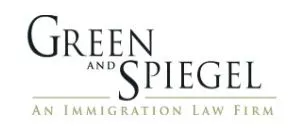On November 15, 2017, the House Judiciary Committee approved H.R. 170, better known as the Protect and Grow American Jobs Act, clearing the way for the new bill to move forward in the U.S. House of Representatives. H.R. 170's sponsor, Representative Darrell Issa of California's 49th Congressional District, issued a Press Release touting his proposed bipartisan legislation as a "common-sense" update to this widely utilized classification that will protect both the H-1B program and U.S. workers. Indeed, Representative Issa reaffirmed that while "[h]ighly skilled individuals that come to America through the H-1B visa program add tremendous value to the U.S. economy...loopholes in the program have allowed a small handful of employers to game the system to displace American workers and crowd out others who legitimately need the limited slots available to recruit individuals with unique skillsets not available here at home."
Though subject to amendments that may take place during the legislative process, Representative Issa's bill does appear to be gaining steam. As such, we will provide a general overview of key changes it would bring to the H-1B program.
In particular, the new bill will target employers that are H-1B dependent, a designation referring to entities whose H-1B employees make up a certain threshold proportion of their overall, full-time workforce in the United States. Per the U.S. Department of Labor, those proportions are as follows:
|
NUMBER OF FULL‐TIME EQUIVALENT EMPLOYEES (U.S. WORKERS AND H‐1B WORKERS)
|
NUMBER OF H‐1B NONIMMIGRANT EMPLOYEES
|
|
1 to 25 |
8 or more |
|
26 to 50 |
13 or more |
|
51 or more |
15% or more of workforce[1] |
Employer need not make additional attestations and efforts if the employee in question will earn in excess of $60,000 per year, or if the worker has attained an advanced degree. Under H.R. 170, the same H-1B employee would need to receive the lesser of $135,000.00 or the mean wage (usually at or around a Level 3 Wage) for the occupational classification in the specific metropolitan statistical area in order to be exempt. Even more, if an H-1B dependent employer places workers at a third-party site, that worker's salary will need to meet or exceed the mean wage for the occupational classification in the specific metropolitan statistical area.
In addition to increased wages, H.R. 170 would introduce additional attestations from both H-1B dependent employers and third parties receiving H-1B workers from dependent employers on temporary assignments, and will hold the latter accountable if there is a lapse in compliance. H-1B dependent employers will also be required to submit proof of recruitment in lieu of the "good faith steps" under the current regime.
Consistent with this Administration's emphasis on enforcement, H.R. 170 would authorize more frequent site visits to ensure compliance. To fund these visits, the U.S. Department of Homeland Security would levy an additional $495.00 fee for all H-1B dependent employers filing new H-1B Petitions.
As mentioned above, the House and Senate still have work to do on this bill, which Representative Issa summarizes on his website. Therefore, we at Green and Spiegel will continue to monitor this and all legislation that could affect our clients. Whether an H-1B employer or employee who thinks this proposed legislation may affect you, we are here as a trusted resource if you have any questions or concerns.
Footnotes
[1] If passed as drafted, this percentage would increase to 20%.
Sign-Up For the Upcoming Inside Immigration Webinar on November 30, at Noon EST
Inside Immigration is a monthly call featuring Green and Spiegel's immigration lawyers covering a broad range of topics in immigration law, including:
- Recent developments
- Trends in immigration law
- Expert insight
Register here
Sign up for our e-Alerts
The content of this article is intended to provide a general guide to the subject matter. Specialist advice should be sought about your specific circumstances.

